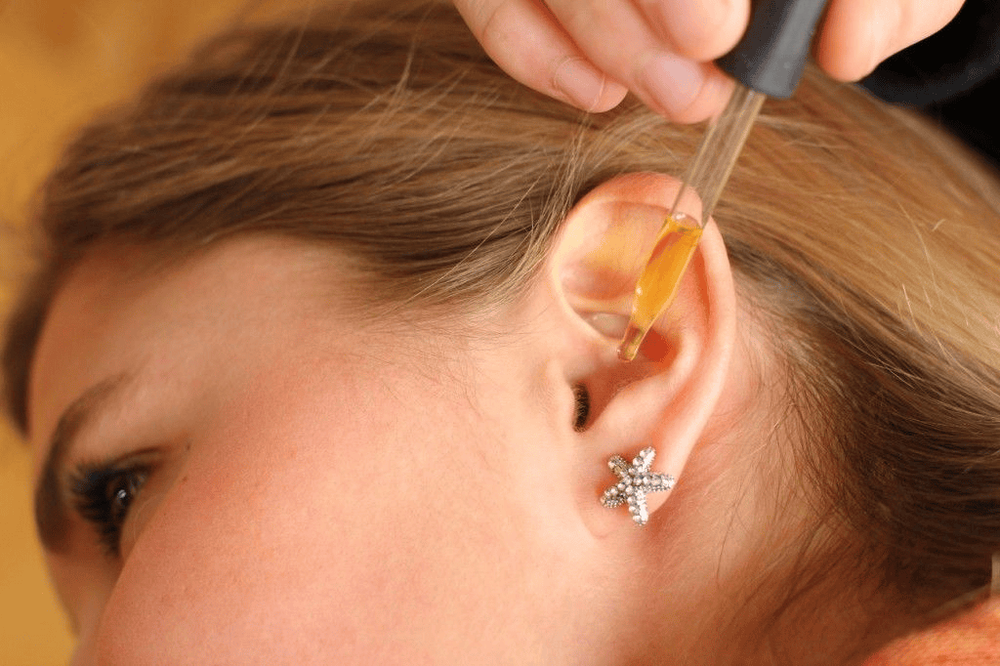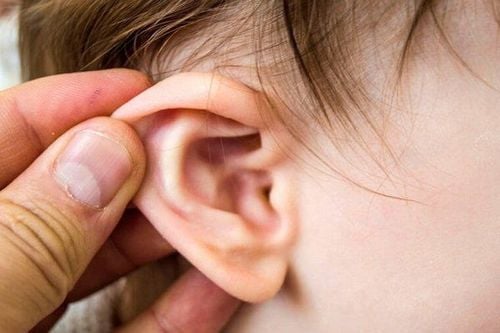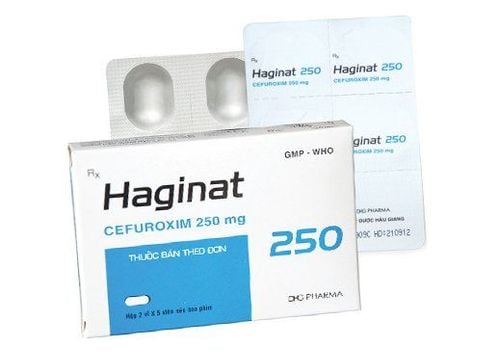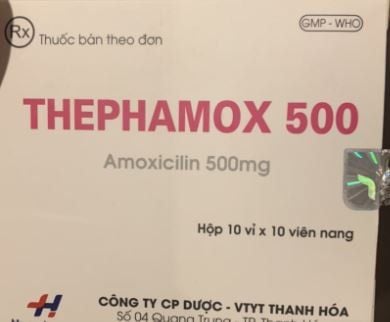This is an automatically translated article.
The article was consulted with Specialist Doctor II Nguyen Van Thai - Ear, Nose Throat Doctor - Department of Medical Examination & Internal Medicine - Vinmec Danang International General Hospital.Middle ear infections are common in both children and adults. Although adult otitis media is not life-threatening, it can bring discomfort to the patient. To know the causes, symptoms and treatment of the disease, refer to the article below.
1. What is otitis media?
The ear is divided into 3 parts: the outer ear, the middle ear and the inner ear. Otitis media is the most common disease of the ear, belongs to the group of inflammatory diseases of the upper respiratory tract. It is often painful because of the inflammation and accumulation of fluid in the middle ear. There are two types of otitis media: acute otitis media and chronic otitis media. The disease, if not treated in time, can easily lead to dangerous complications such as mastoid otitis, meningitis, brain abscess, facial paralysis,...2. Symptoms of adult otitis media
Adult otitis media has the following symptoms:Have a fever and the patient always feels tired and dehydrated. Frequent headaches that persist. Because the pain occurs frequently, the patient is prone to insomnia, causing symptoms of fatigue in the body. Pain in the ear often causes discomfort and distraction when working for the patient. Some patients may experience discharge from the ear. Often feeling tinnitus, not hearing clearly, if left for a long time, it will cause deafness, even severe deafness.

3. Causes of adult otitis media
● Inflammation of the respiratory tract, tonsillitis, flu, ... easily lead to otitis media. The reason is because the ears, nose, and throat are organs that are closely related to each other. When the nose and throat are infected, the ears are also easily affected.● Otitis media caused by upper respiratory tract exposure to dust, tobacco smoke.
● Inflammation of the middle ear due to not paying attention to clean, causing injury to water entering the ear when bathing.
4. How to treat adult otitis media
Adult otitis media is usually divided into 3 stages: the congestive phase, the purulent stage, and the purulent stage. Doctors will determine at what stage the patient has otitis media to make the most appropriate treatment option.● Patients with otitis media in the congestive stage need only medical treatment with systemic antibiotics, anti-inflammatory, anti-edematous, analgesic, antipyretic and combined with nose-throat treatment.
● When otitis media turns to pus stasis, the doctor will advise the patient to perform an eardrum extraction and use it simultaneously with systemic drugs such as in the congestive stage.
● When otitis media goes through these 2 stages, the pus-filled fluid in the middle ear will break through the thinnest part of the eardrum, draining out. At this time, the eardrum is punctured and the treatment will be more difficult.

5. Some drugs to treat otitis media in adults
Systemic treatment drugs ● Oral or injectable antibiotics: Beta-lactams, quinolones, and macrolides are the first choice for the treatment of otitis media.● Short-term anti-inflammatory corticosteroids (7 - 10 days) or non-steroid anti-inflammatory drugs, anti-inflammatory drugs to reduce edema, ... to prevent inflammatory progression, restore damaged tissue structures, support kill bacteria that cause inflammation.
● Antipyretic, analgesic: The most common and safest is paracetamol, the dose is according to the instructions for use on the box or as directed by a doctor.
Local treatment drugs ● Nasal drops: Use anti-congestive, vasoconstrictor, anti-inflammatory, edema-reducing drugs... to clean the nasal cavity, return ventilation to the middle ear, nose, and throat. These drugs help restore the inflamed mucosa in the middle ear and drain the pus from the middle ear out easily through the eustachian tube. The most commonly used drugs are otrivin 0.05%, collydexa, sulfarin, naphazolin, xylometazolin,...
Ear drops for otitis media without perforation of the eardrum are cortiphenicol, polydexa, warm boric alcohol, otipax, ... In case of ear infection with perforated eardrum, the doctor appoints the patient to use ear drops prepared with antibiotics with high safety for the cochlea, such as effexin, rifamycin,...
Diagnosis and treatment of adult otitis media should be performed by an ear, nose, and throat specialist. Patients should not arbitrarily use drugs because it can cause dangerous complications, even deafness or muteness.
Otolaryngology - Vinmec International General Hospital specializes in examining and treating common ENT diseases such as: tonsillitis, sore throat, tinnitus, otitis media, non-allergic rhinitis, sinusitis, throat cancer; tumors of the head, face and neck, congenital malformations of the ear, nose and throat area by common surgical methods.
BSCK II Nguyen Van Thai was formerly a Doctor of Otolaryngology and Head and Neck Surgery at the Department of Otolaryngology - Hue Central Hospital with more than 17 years of treatment experience, especially in the field of Head and Neck Surgery. Currently, he is an Otolaryngologist at the Inter-Specialist Clinic of the Department of Medical Examination and Internal Medicine, Vinmec Da Nang International General Hospital.
Please dial HOTLINE for more information or register for an appointment HERE. Download MyVinmec app to make appointments faster and to manage your bookings easily.














